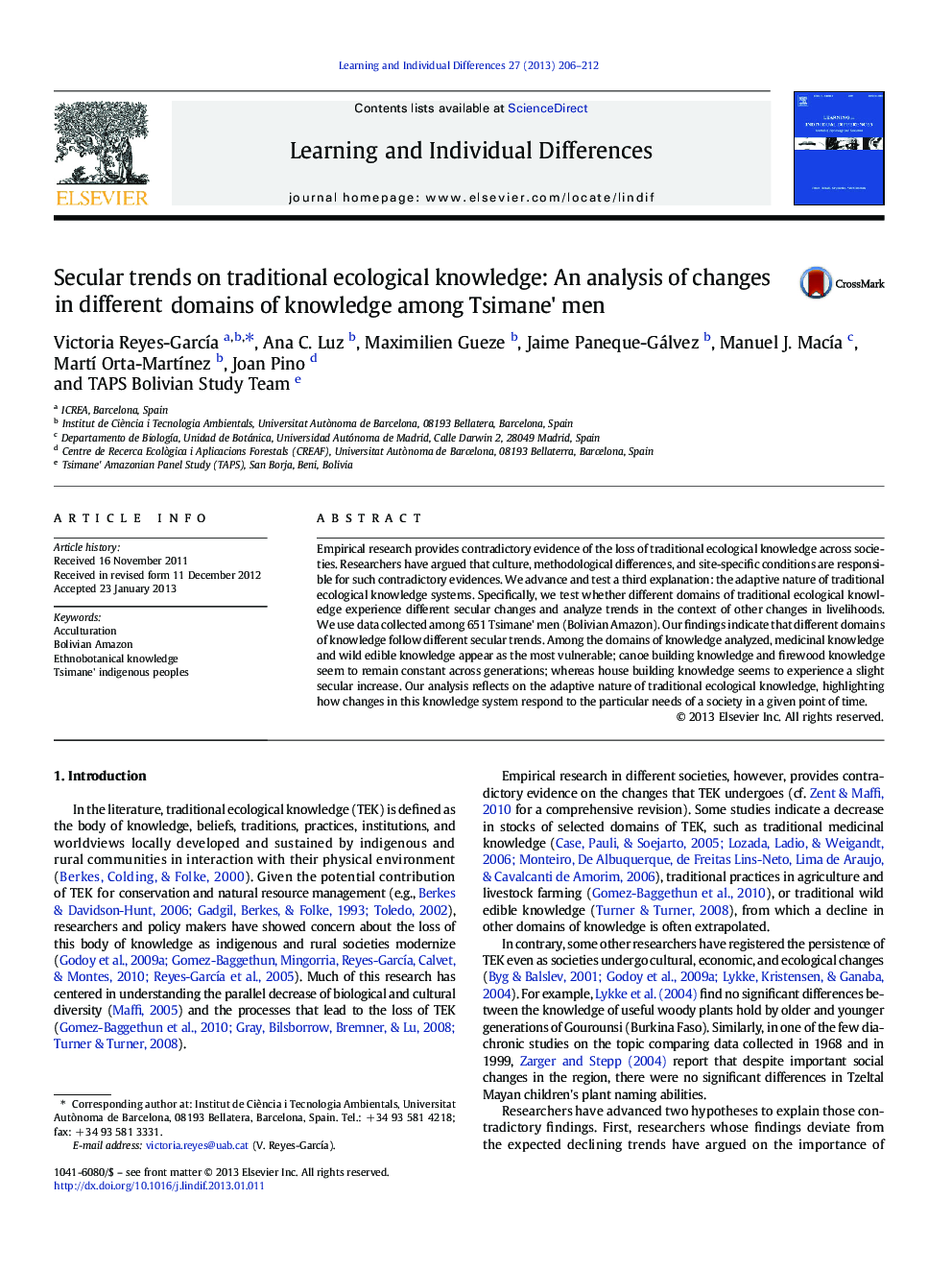| Article ID | Journal | Published Year | Pages | File Type |
|---|---|---|---|---|
| 364759 | Learning and Individual Differences | 2013 | 7 Pages |
Empirical research provides contradictory evidence of the loss of traditional ecological knowledge across societies. Researchers have argued that culture, methodological differences, and site-specific conditions are responsible for such contradictory evidences. We advance and test a third explanation: the adaptive nature of traditional ecological knowledge systems. Specifically, we test whether different domains of traditional ecological knowledge experience different secular changes and analyze trends in the context of other changes in livelihoods. We use data collected among 651 Tsimane' men (Bolivian Amazon). Our findings indicate that different domains of knowledge follow different secular trends. Among the domains of knowledge analyzed, medicinal knowledge and wild edible knowledge appear as the most vulnerable; canoe building knowledge and firewood knowledge seem to remain constant across generations; whereas house building knowledge seems to experience a slight secular increase. Our analysis reflects on the adaptive nature of traditional ecological knowledge, highlighting how changes in this knowledge system respond to the particular needs of a society in a given point of time.
► Different domains of traditional plant knowledge follow different secular changes. ► The most vulnerable knowledge for Tsimane' men relates to medicinal and wild edibles. ► Knowledge of firewood and canoe building seems stable among Tsimane' men. ► Knowledge related to house building experience a secular increase. ► Secular changes in traditional plant knowledge are associated to changes in livelihood.
